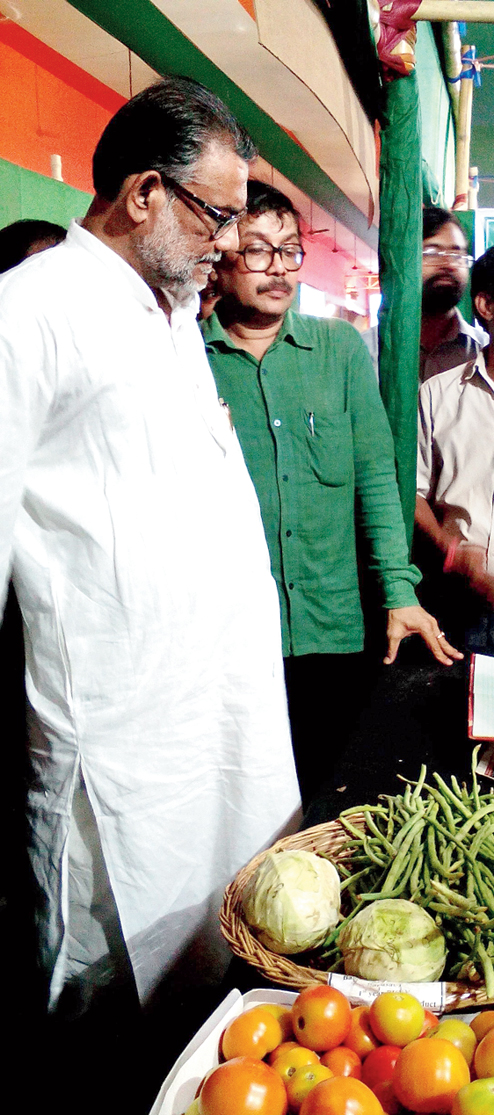The three-day Bidhan Krishi Mela ended on Monday at Bidhan Sishu Udyan with the agriculture minister Purnendu Basu promising to make it an annual event.
“We also have to make the Sunday haat bigger,” he said, referring to the sale of organic products that has started at the Ultadanga address on Sundays from 8am. He plans to add organic meat and fish to the list of saleables at the haat and open a counter to sell manure. “We can also rear livestock like partridges on the bank of the pond inside the complex. The birds’ excreta will serve as fish feed.”

Later, speaking to The Telegraph Salt Lake, he added that he wanted to offer training to youngsters coming to the Sishu Udyan. “They are being exposed to organic agricultural products here at the fair. We can train them to grow vegetables at home which can be used in the kitchen. It will not take much space. City students are so used to products coming from the market that they have little or no idea of agriculture. I would also request the Udyan authorities to take them to visits to villages,” Basu said.
A host of experts also spoke in the final session. Talking of how they cured people with yoga, naturopathy and wholesome food, Dr Sujata Pal of the Indian Research Institute for Integrated Medicine, Howrah, suggested some alterations in food habits. “Why do we drink cola on getting home from the sunny outdoors? Can’t we offer home-made sherbet with lime and a pinch each of salt and sugar? Even sattu sherbet is so healthy.” In place of a pastry for tiffin, she suggested that mothers pack sprouts. “This would be so rich in Vitamin E,” she said. She also advised people to grow wheatgrass at home. “It can be done on a tray without clay.”
Green basics
Sample some questions from a quiz held to increase awareness among the students present.
What is the livelihood of 70 per cent people in West Bengal?
Agriculture
Name a tree whose leaf is used as a pesticide.
Neem
Which disease is at risk of spreading the quickest from chemical fertiliser and pesticide?
Colon cancer
What is vermicompost mainly made of?
Excreta of earthworm
Name the three Rs of waste management.
Reduce, reuse, recyle

Waste management specialist Sanghamitra Mukherjee shared a tip on how to identify quality mustard oil. “If we rub some on the skin, it should get absorbed without leaving a sticky sensation.” She lamented that people were “consuming poison” by opting for “good-looking vegetables”. “Keep vegetables soaked in lukewarm water for 15-20 minutes before chopping them. That would wash away the water-soluble pesticides and colours,” she advised.
“Human beings are producing waste ever since Adam bit into the apple. He must have thrown away the rest.” She urged people to produce compost out of biodegradable waste resulting from daily use.
Siddhartha Gupta, who is undertaking in the Sunderbans area warned of the ill effects of prolonged consumption of vegetables grown with chemical fertilisers. “There are heavy metals in these fertilisers like cadmium, lead and mercury. This affects kidneys. Lover problems follow. Girls start menstruating early. It can even make the DNA cancer-prone.”
“Organic farming is a movement. Chemical fertiliser may hike produce in the short run but harms the soil. We need to raise awareness about this,” said secretary Gautam Talukdar.











